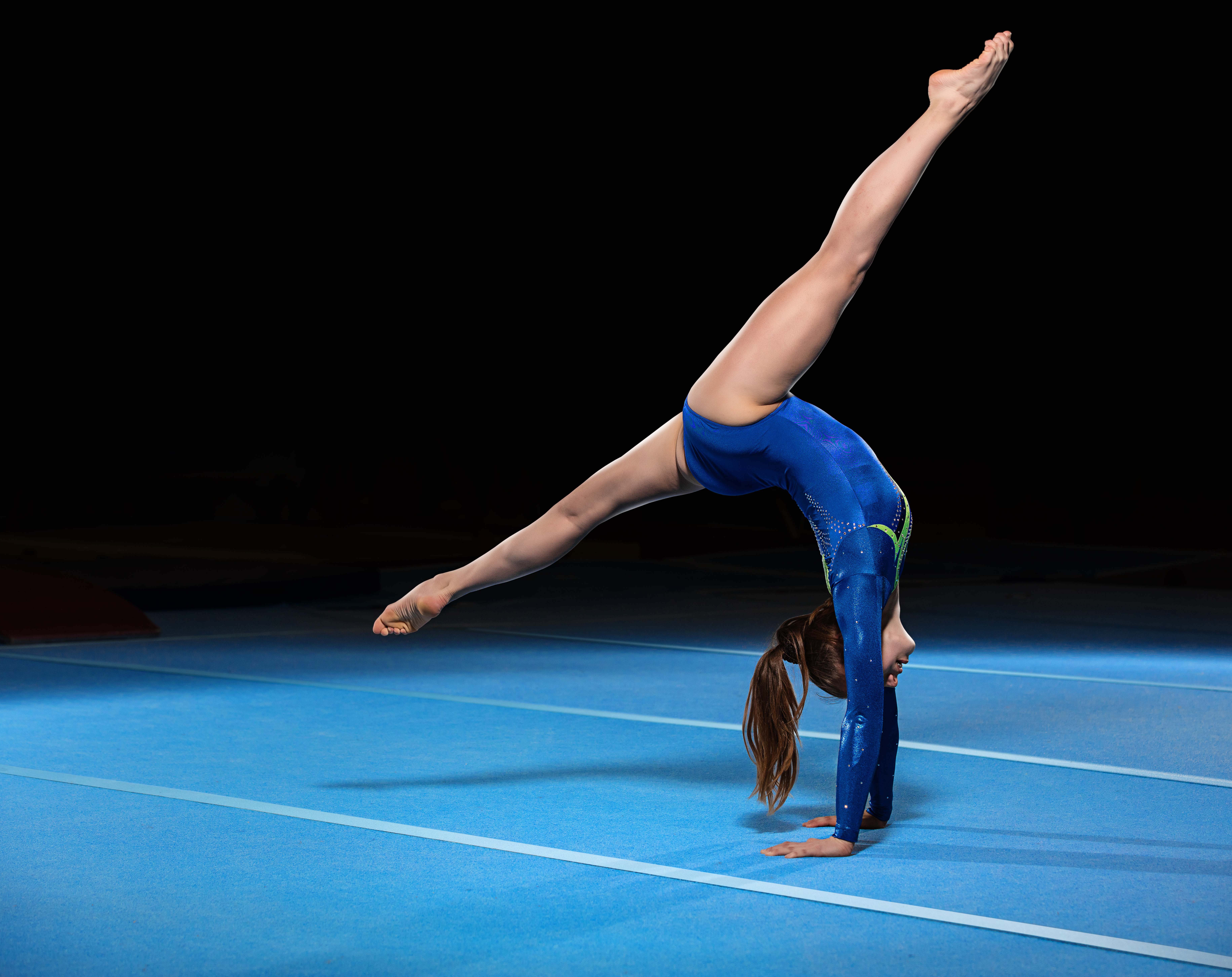Lesson Learned

Lesson learned: No winner is predetermined.
“Nobody wins the warm-ups!” one of my gymnastics coaches used to tell (or rather, scold) us when the competition wasn’t going so well. For him, that translated to “you look like a bunch of fools now that the judges are watching.”
Except I’ve found that phrase to mean something else entirely. It’s easy to count yourself out before you’ve begun, to look around the room and think, Wow, everyone here is better than me. Why am I bothering? It’s so easy to let the vestiges of your confidence shrivel.
But you can never truly predict the results.
April, 2008: After sixteen hours in a van, my teammates and I rolled into Greensboro, North Carolina for Nationals. Our presence intimidated exactly no one. Heck, we couldn’t even tie-dye our team shirts correctly; instead of our school’s bold red, they turned out a cheerful peach. Rather than dreams of glory, the team was driven by a common love of gymnastics.
As luck would have it, we’d drawn the same subdivision as Penn State. Earlier in the season, they’d come to our turf and destroyed us, and they sure looked ready to repeat that show as they warmed up at Nationals with superior difficulty and excellent execution. Not only that, but they were up first on floor exercise and we’d follow them.
We knew we had no shot at any kind of a team award, unless there was a special category for “excellence in taking group handstand photos.” However, I had my own secret goal: to qualify to finals. In order to do so, you needed to place in the top three on an event in your subdivision. Floor was my best shot, and I wanted to be in that top three. Badly.
I watched each Penn State routine closely. If someone fell or stumbled, the door might open for me. Instead, the girls hit and hit. And the judges were unimpressed. The scores flashed on the scoreboard. 8.75. 8.80.
The jitters I already had quickly turned to crushing self-doubt. I can’t beat them. Not only was my tumbling weaker, but so were my body parts; I was tumbling on a reconstructed ACL and meniscus, the foot I’d broken last year, and a rib I’d cracked two months before that I hoped was healed (it no longer hurt when I breathed, so that was good, right?). I had no chance against these girls. I was less than, period.
I can’t. I can’t.
I waited for the head judge to signal for me to begin.
I didn’t have the difficult tumbling. That was a fact. I had generally strong execution – that is, giving away no deductions by having straight legs and pointed toes. That would help. I also had one other possible advantage. After difficulty and execution, judges evaluate artistry: the relationship of the choreography to the music, the emotional connection, the extra something that turns heads and makes the routine memorable. I’d always been a performer, and my hope rested in captivating the judges.
As a senior in college, this could well be my final competitive routine. As soon as I saluted and lowered myself into my opening pose, the jitters solidified into steel. No matter what happened – no matter what score the judges threw me – I was going to put on a hell of a show.
I pantomimed swinging a sword to my Pirates of the Caribbean music, earning whooping cheers from my teammates. I smiled at the judges as I frolicked past them, kicking my legs over my head into an aerial. I landed my final pass, the one that I’d blown out my knee on three years earlier, and threw my head back triumphantly.
By the time I jogged off of the floor, I was exhausted, but smiling. For better or worse, I’d done all I could, and there was something beautifully satisfying in emptying the tank.
Then my score went up: 9.20.
It held through the rest of the subdivision. It wound up being good enough for third place and qualifying to finals.
Good enough, period.
Diana Gallagher’s debut YA novel Lessons in Falling will be published by Spencer Hill Press in early 2017. It is now available for pre-order at Amazon.
< Previous Post Next Post >